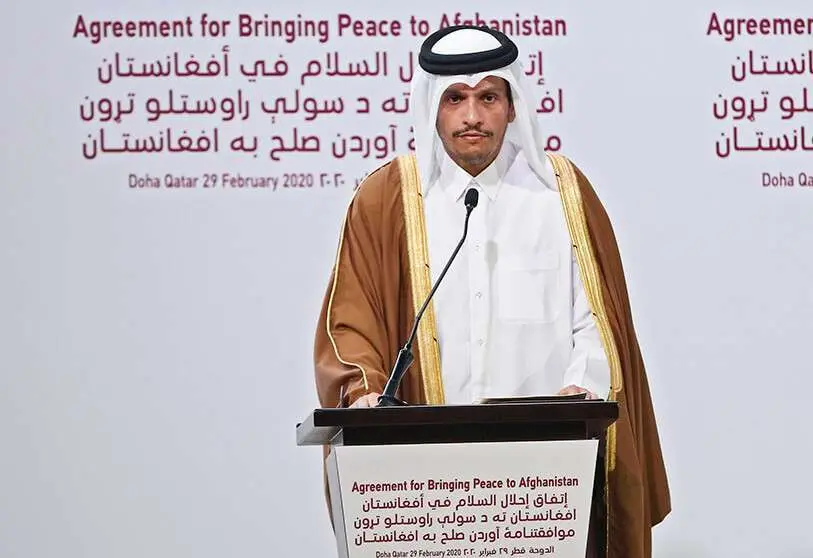Qatar offers to mediate between Iran and the US

According to AFP news agency, Qatar's foreign minister met his Iranian counterpart in Tehran with the aim of mediating between Iran and the United States over the 2015 nuclear deal that Washington is now considering returning to.
Sheikh Mohamed bin Abderrahmane al-Thani was received by the Iranian minister, Mohamad Javad Zarif, only a week after Tehran renounced to continue complying with some points of the agreement until Washington lifts the sanctions imposed on the Islamic Republic since 2018.
The Qatari minister used the trip to meet President Hassan Rohani, to whom he conveyed the greetings of Qatar's emir, Sheikh Tamim bin Hamad al-Thani.
Although Doha is a close ally of the US, it also maintains good relations with Iran. Indeed, this was one of the reasons given by Saudi Arabia and its allies in 2017 when they severed relations with Qatar and imposed a trade blockade.
The visit took place amid tensions between Tehran and Washington despite the announced desire of the new US president, Joe Biden, who has been in favour of putting an end to the "maximum pressure" policy of his predecessor, Donald Trump, which resulted in the unilateral exit of the United States from the Iranian international nuclear agreement concluded in Vienna in 2015.
In response, Iran since 2019 has been gradually breaching the enriched uranium production limit to which it committed itself in order for the international community to ease the sanctions that are causing so many problems for its economy.
The Iranian parliament, in which the most conservative groups hold a majority, passed a law in December requiring the government to halt "the implementation of the additional protocol" to the agreement as of 21 February if the US has not lifted sanctions by then.
If the legislature complied, Iran would no longer allow International Atomic Energy Agency (IAEA) inspectors access to facilities, especially military ones, in case of suspected nuclear weapons activity.
Until recently, the US ambassador to Israel, David Friedman, opposed a return to the nuclear deal on the grounds that it would jeopardise the normalisation of relations between Israel and several Arab countries since the signing of the Abraham Agreement last September.
In late January, the Qatari foreign minister announced in an interview with Bloomberg TV that Qatar would be willing to mediate a meeting between the six Gulf Cooperation Council (GCC) countries - Bahrain, Saudi Arabia, Kuwait, the United Arab Emirates, Oman and Qatar itself - and Iran, "a desire shared by the countries" of the organisation, according to al-Thani.
Meanwhile, Mutlaq al-Qahtani, a special adviser to the minister, announced Doha's readiness to also mediate specifically between Iran and Saudi Arabia, should Riyadh request such mediation.
Egypt also received the Qatari offer of mediation, although Iran has been keen to negotiate with Egypt to normalise relations without any mediation. However, Egypt is currently closed to negotiations with Iran, arguing that time and circumstances do not permit.









